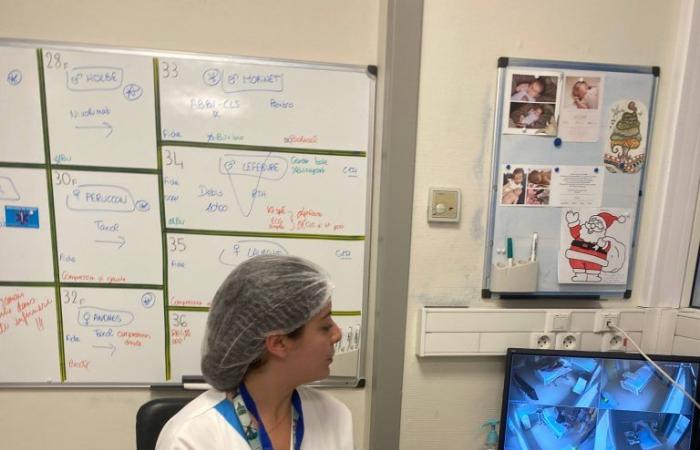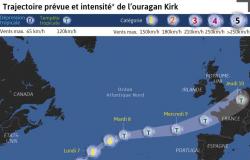
It has just obtained, in partnership with the Nice University Hospital, the prestigious “Clip” certification label.2” (1) of the Inca (National Cancer Institute). Recognized both regionally and nationally for the quality of its organization and care of cancer patients, the early phase unit (UPP) of the Antoine Lacassagne Center, created in 2017, is now among the 16 establishments in France having demonstrated their competence and dynamism in clinical research in the field of cancer treatment. And more particularly in the field of early phase clinical trials.
The Dr Esma Saada-Bouzid, medical oncologist and head of this UPP, is delighted to obtain this label, which will allow a greater number of patients to access innovative molecules.
“Early trials offer new opportunities for people with advanced cancers, allowing them to benefit from promising treatments in the development phase, before they are placed on the market. These molecules have all shown their anti-tumor activity in preclinical studies (cellular and animal models), and can now be explored in the context of the treatment of cancers in humans.”
No testing in healthy volunteers
Unlike treatments for other pathologies, anti-tumor therapies, due to their ability to destroy cells, cannot be tested in healthy volunteers, for obvious ethical reasons.
“They are first evaluated on cellular models, then animal models, and when all the lights are green – which is the case for a small number of molecules – we study their effectiveness in humans,” summarizes Dr Esma Saada-Bouzid. This step, very supervised by strict regulations, is crucial because it still involves many unknowns.
“It is essential to be able to anticipate and manage possible side effects, including the most serious, in collaboration with specialists in different organ pathologies as well as specialized intensive care services. This is why phase 1 trials , which constitute the first passage of treatments from animal to human, can only be carried out in authorized centers, specially trained and equipped to ensure optimal management of these situations.”
Doubling of tests
If the UPP currently offers around twenty very early phase trials, Dr Saada-Bouzid plans, with this Clip label2to soon double their number. “Our unit was evaluated on strict organizational, quantitative and qualitative criteria. This distinction will logically allow us to offer more new molecules, thus offering increasingly personalized treatments, which we hope are more effective and better tolerated for patients. patients.”
Good general condition
Who are (will be) the candidates to “test” these potential drugs? All of them have in common that they are over 18 years old (Local Clips do not yet have the pediatric label), that they have cancer most often at an advanced stage, but also that they are in good general condition.
“It is essential, insists the oncologistto be able to get the most out of innovative treatments and better manage possible side effects.” After giving their informed consent, these patients, for whom current medicine does not yet have a curative solution, then have the opportunity to access cutting-edge therapies.
“Thanks to close collaboration with their oncologists, whether in public or private establishments in the Paca-Est region or in Corsica, their files are sent to us. After an in-depth analysis of their tumor, particularly on the genetic level, we “We are evaluating their eligibility for these promising therapeutic trials. This inclusion also reduces travel, providing local access to innovative treatments that were previously only available in other cities such as Marseille, Lyon or Villejuif.”.
1. Labeled early phase cancer centers.
“I am very lucky to have been able to participate in this trial”: a patient treated in Nice testifies
July 2020. Philippe, now 61 years old, is operated on at l’Archet hospital, in Nice, for a melanoma in the back, which has already spread to the lymph nodes at the time of diagnosis. “I immediately benefited from immunotherapy intended to prevent a recurrence.”
Unfortunately, treatment fails to prevent the spread of the disease. A few difficult months passed. Philippe is aware that he is in a therapeutic impasse.
Father of a 17-year-old teenager who has fully depended on him since the death of his mother a few months earlier, he worries about his future, even though he knows he is doomed. “I said to myself: I’m going to die… And I thought of my son.”
And then there’s this call from his dermatologist: “We have an early clinical trial to offer you.” Philippe doesn’t even worry about the potential risks: “I had nothing to lose, I was doomed. So I was just happy to be offered something.”
November 2023, Philippe is hospitalized for 24 hours at the CAL UPP in Nice and receives the first injections of the new combination of drugs. “As the only side effect, I had a flu-like illness for a few days. Since then, I haven’t had any.”
More than 9 months have passed, the disease has receded: “I am well aware that I am not yet saved, he comments calmly. But I’m already very lucky to have been able to participate in this trial.”
To date, around thirty patients worldwide have been included, only six places are still available. “It will soon be closed and we will no longer be able to include new patients”indicates the Dr Esma Sader-Bouzid.
But, she immediately reassures Philippe. He can continue to be treated as long as he benefits from it (for the moment, the therapeutic combination tested is considered as a chronic treatment).
And today he only has one dream: “Let it work as long as possible so that I can continue to support my child…”





